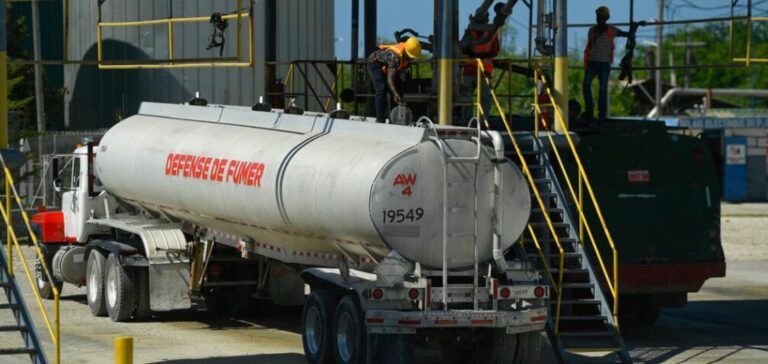Fuel deliveries have resumed in Haiti, Haitian authorities announced, as police regained control of the country’s largest oil terminal after two months of blockade by gangs.
“Several tankers left the terminal under heavy police escort,” the Haitian National Police announced on Facebook on Tuesday.
At least 45 tankers have been loaded with fuel, officials at the Varreux terminal, which supplies most of the petroleum products consumed in Haiti and had fallen under the control of gang leader Jimmy Chérizier, nicknamed “Barbecue,” on September 12, said on Twitter.
This first shipment is to supply factories, hospitals and public institutions, according to information obtained by AFP, and deliveries were continuing on Wednesday.
“This result is the fruit of a great battle led by the Haitian National Police to dislodge the armed groups that have taken the area hostage,” continued the police.
“The days of November 9, 10 and 11 will be devoted exclusively to the supply of various gas stations,” said Tuesday the Haitian Ministry of Commerce and Industry in a statement.
“All arrangements will be made by the competent authorities to accompany the members of the sector as well as consumers for a disciplined distribution of gasoline in the interest of the entire population from Saturday, November 12, 2022″, he added.
Haitian law enforcement agencies announced last Friday that they had regained control of this strategic infrastructure, located southwest of the capital Port-au-Prince.
The blockage of the terminal had led to a virtual paralysis of the country, aggravating the security, political and humanitarian crisis in this poor Caribbean country.
The lack of fuel had also interrupted the distribution of drinking water, which is crucial in the fight against cholera, whose cases have recently exploded in Haiti.






















